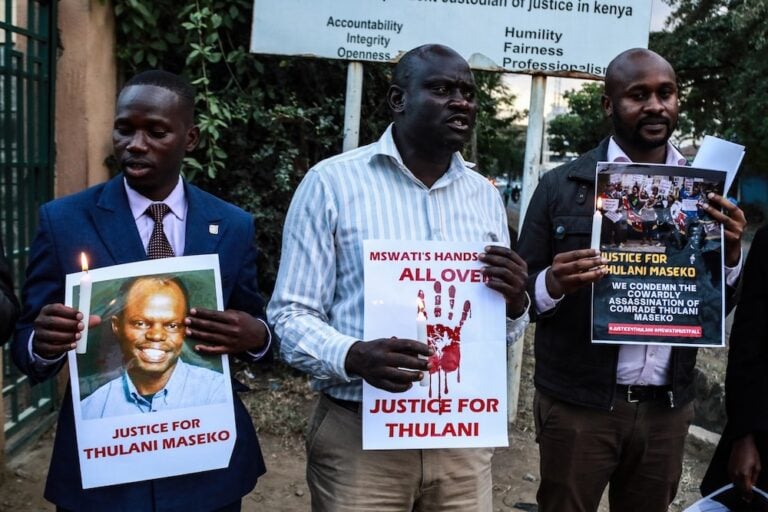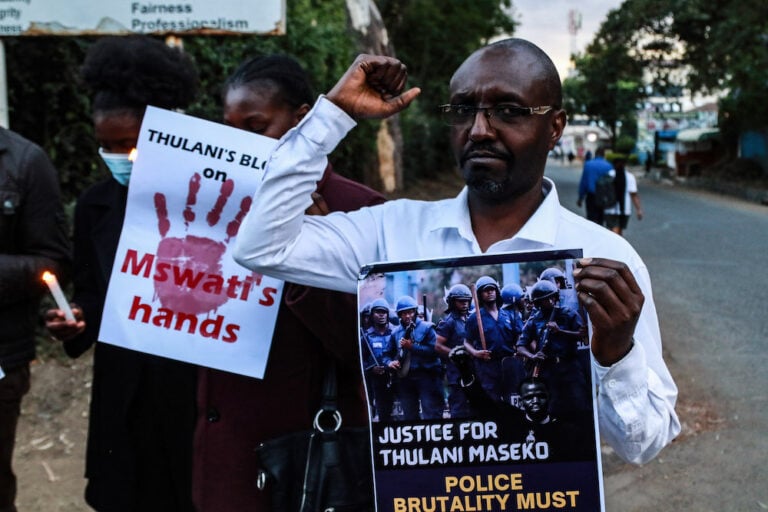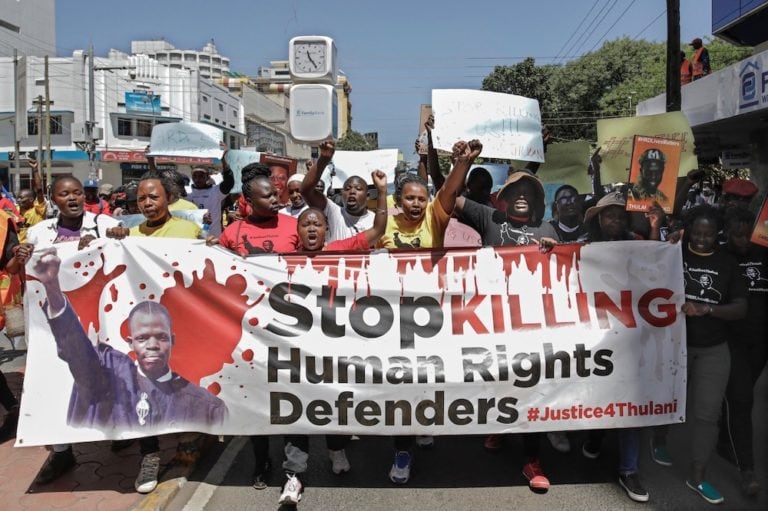Barnabas Sibusiso Dlamini suggested that newspapers should be required by law to obtain the government's permission before publishing any column.
(RSF/IFEX) – 27 October 2010 – Reporters Without Borders wrote to Prime Minister Barnabas Sibusiso Dlamini yesterday voicing outrage at the fact that he accused Swaziland’s newspaper columnists of trying to tarnish the country’s image at the behest of foreign interests and suggested that newspapers should be required by law to obtain the government’s permission before publishing any column.
“Conspiracy theory is an old refrain in the simplistic rhetoric of governments with little inclination to respect basic freedoms, Reporters Without Borders secretary-general Jean-François Julliard wrote. “Putting more obstacles in the path of journalists will only have a negative effect. Adopting such a law would bring shame on Swaziland and tarnish its image much more than any critical newspaper column.”
The letter added: “We urge you to promote press freedom and free speech and to abandon any plans for a repressive media law. By putting an end to the current harassment of the media and relaxing the climate for journalists, you will help Swaziland advance resolutely towards modernity.”
In a recent address to parliament, the prime minister said he would like to see it adopt a press law that would force columnists to obtain prior permission from the authorities before any column appeared. “By making government approval a condition for the publication of newspaper articles, you would stifle all freedom of expression and strip journalism of its very essence,” the Reporters Without Borders letter said.
Although Swaziland’s constitution guarantees press freedom, the country’s media are subject to a great deal of harassment. The authorities often tell journalists how to behave. On 21 July, King Mswati’s brother threatened critical journalists with violence. Two columnists, Mfomfo Nkambule of the Times of Swaziland and Mario Masuku of the Times Sunday, were forced to abandon their columns last year under government pressure.
The state-owned press only publishes information that has been checked and approved by the information ministry. Independent newspapers have enormous difficulty in gaining access to official information. Self-censorship is widespread and criticism almost unthinkable.
For all these reasons, Swaziland is ranked 155th out of 178 countries in the press freedom index that Reporters Without Borders released on 20 October. King Mswati III has been on the Reporters Without Borders list of “Predators of press freedom,” for several years.


